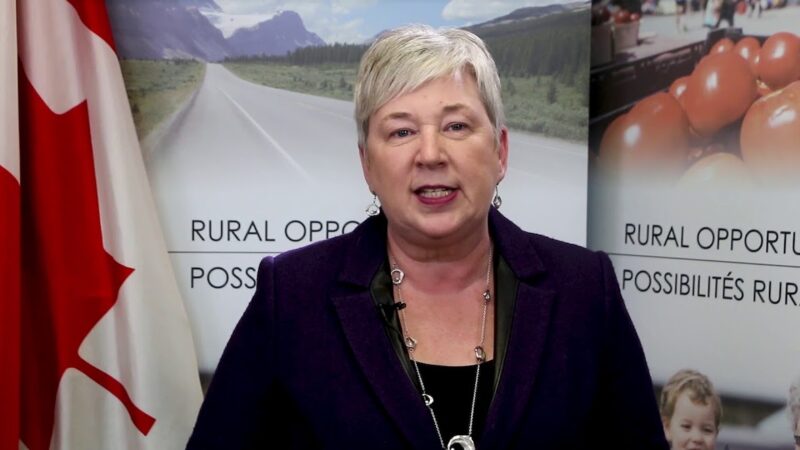BC salmon farms in Discovery Islands to go
Decision on Discovery Islands’ salmon farms more about social licence to operate in the area rather than sound science.
By Fabian Dawson
SeaWestNews
Salmon farms in the contentious Discovery Islands of British Columbia will be phased out over the next 18 months, representing the last time the area will be licensed for open net aquaculture.
The much-awaited decision announced today flies in the face of nine-peer reviewed scientific studies that found farmed salmon pose minimal risks to migrating wild stocks in the Discovery Islands and hands a victory to the First Nations in the area, who aligned themselves with anti-fish farm activists.
“Today’s decision was not easy. I am committed to working with all involved parties; the First Nations, industry and the Province of British Columbia, over the next 18 months to ensure a fair and orderly transition process that phases out salmon farming in the Discovery Islands,” said Bernadette Jordan, Minister of Fisheries, Oceans and the Canadian Coast Guard.
Most of the juvenile Sockeye that head to sea from the Fraser River travel through the waters around Discovery Islands where 19 salmon farms have operated during the past 35 years.
Of the 19 farms in the Discovery Islands, 10 are fallowed (no fish in pens). The Department of Fisheries and Oceans has been issuing marine finfish aquaculture licences in the Discovery Islands on an annual basis.
After consultation with the seven Discovery Islands First Nations, Jordan said her intention is:
- to phase out existing salmon farming facilities in the Discovery Islands, with the upcoming 18-month period being the last time this area is licensed;
- to stipulate that no new fish of any size may be introduced into Discovery Islands facilities during this time;
- to mandate that all farms be free of fish by June 30th, 2022, but that existing fish at the sites can complete their growth-cycle and be harvested.
This approach also aligns with British Columbia’s land tenure commitment that all aquaculture licenses as of June 2022 require consent from local First Nations.
The federal government also reaffirmed its pledge to responsibly transition from open-net pen salmon farming in coastal British Columbia waters by 2025.
But this transition in British Columbia’s waters, does not necessarily mean ousting fish farmers from the oceans to land-based operations, said Terry Beech, Parliamentary Secretary to the Minister of Fisheries.
The future of salmon farming in BC could involve a range of technologies including hybrid grow-out operations, closed and semi-closed containment systems in the ocean together with an area-based management approach.
Anti-fish farm activists and some First Nations have been waging a relentless war against salmon farmers in BC, claiming that their operations were impacting wild stocks, without any credible scientific evidence.
They recently attacked the nine peer reviewed scientific studies on pathogen transfer risk between wild and farmed fish that have found farmed salmon pose minimal risks to migrating wild stocks in British Columbia.
For the nine risk assessments, the sources included both international and Canadian experts – including First Nations, ENGOs, academic and aquaculture industry experts – from a wide variety of disciplines. The conclusions were generated through the Canadian Science Advisory Secretariat (CSAS) peer-review process and represented the consensus of the scientific advice of the participants.
Industry sources anticipating today’s decision said it was made more around the issue of social licence to operate in the Discovery Islands rather than sound science.
They said it may put a dent into the plan by salmon farmers in British Columbia who have announced they are ready to lead Canada’s post-pandemic recovery by directly investing $1.4 billion in innovation, new technology and infrastructure.
The investments through 2050 would create almost 10,000 new jobs and add a cumulative $44 billion in new economic activity to propel Canada’s Blue Economy.
The mayors of Port Hardy, Campbell River, Gold River and Port McNeill, all aquaculture-dependent coastal communities on Vancouver Island, had earlier sent a letter to Minister Jordan saying they believe that both the wild and farmed salmon industries can thrive in BC’s oceans.
“The potential impact of the Discovery Island Fish Farm License decision and consultations about ‘transitioning’ the salmon farming industry could have far-reaching consequences for all of our communities,” the mayors said.
The Broughton Archipelago, on the northeastern flank of the Queen Charlotte Strait in British Columbia, is also seeing an orderly transition of 17 fish farms, that will be completed by 2023.
(Image shows Bernadette Jordan, Minister of Fisheries, Oceans and the Canadian Coast Guard.)

